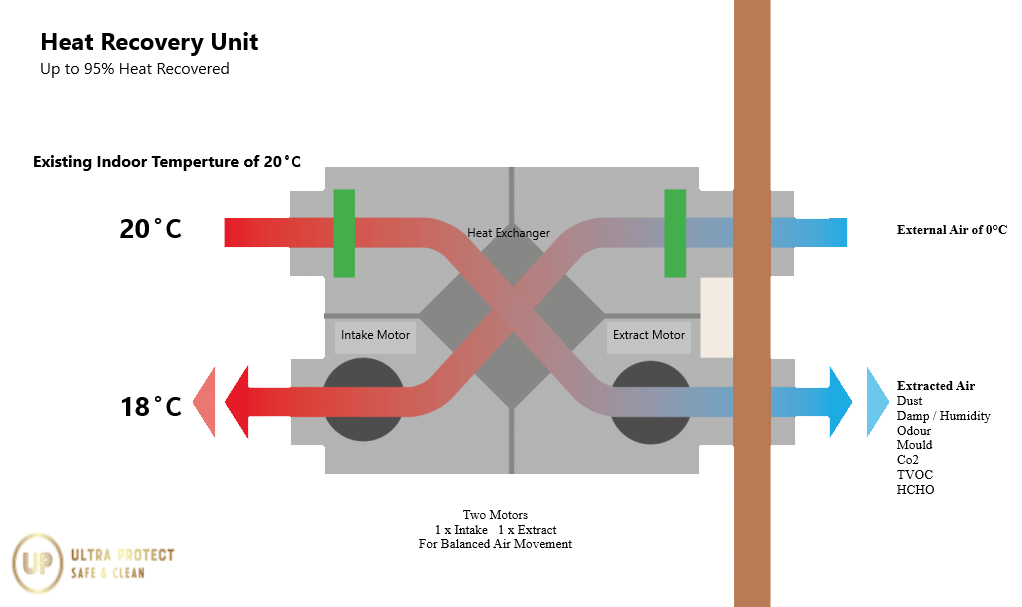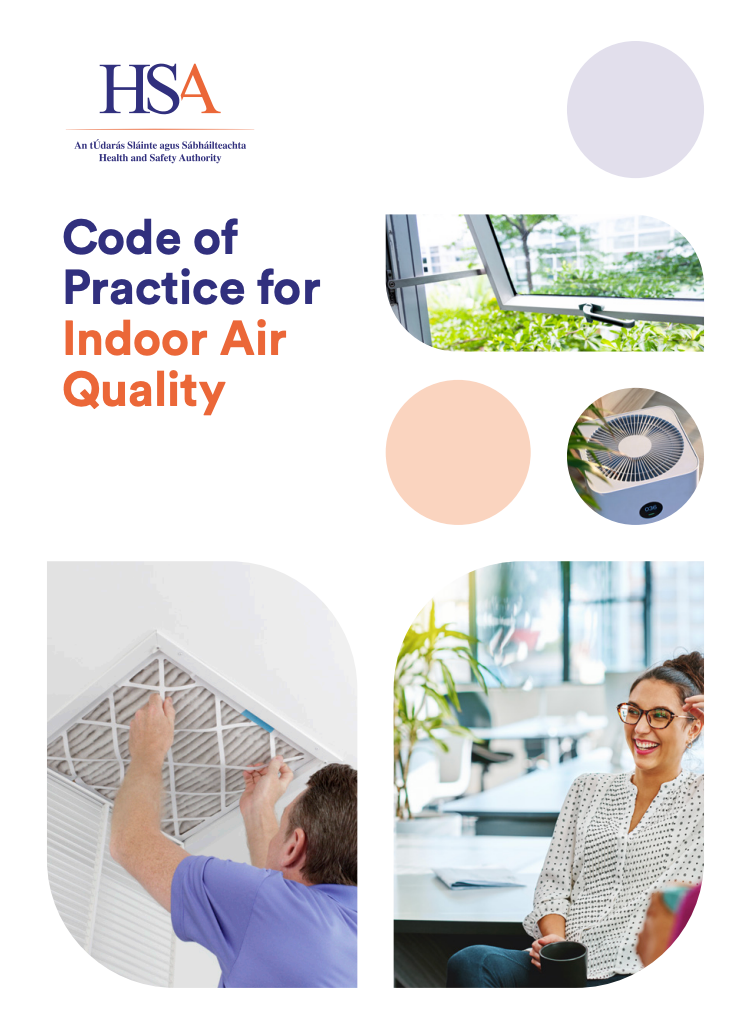At Ultra Protect, we are committed to continuously improving the air management services that we offer to our clients. This is why we are pleased to offer heat recovery systems that ensure you can save money and do your bit to protect the environment.
But what is it, how does it work, and why should you even care?

To help you get on board with heat recovery, we have developed an extensive guide designed to answer all your questions. Afterwards, we’re sure you will be wondering why you didn't have these systems in place sooner!
What is Heat Recovery?
Before we go any further, allow us to define in simple terms what heat recovery is. This way, you will know immediately if this is a system you might want to consider for your home.
In short, heat recovery is utilised to improve indoor air quality and energy efficiency. But how?
Also known as mechanical ventilation heat recovery (MVHR), these systems extract stale and moist air from your home or building and replace it with fresh, clean air. This air has been filtered from external sources, ensuring your space is well-ventilated while preventing heat from leaking from your home.
So, while it sounds like a great system to have in place, how much do you actually need it?
Do I Need Heat Recovery?
Heat recovery is a highly beneficial system to have in place in new buildings, as, unlike older buildings, they don’t have the ability for natural airflow.
This is why you may initially dismiss the need for heat recovery, as you have likely not heard older generations talking about the system. We tend to follow in our parent’s footsteps when buying and maintaining a home. So, if they didn’t need it, why would you?
Older buildings had many features we now actively seek to remove, for example, open fireplaces, single glazed windows, open-air bricks, gaps in flooring and timber doors. Once upon a time, these standard features would lead to heat emissions which today would mean the loss of heat we actively pay for to keep our homes toasty warm. However, they were not all negative as they would also enable fresh air to enter the home.
So, if we want to maintain the best of both worlds, heat recovery systems are the way forward!
How Can Heat Recovery Benefit You?
Now that you know why heat recovery systems are needed let's go over the benefits you can expect to see once the system is in place in your home or building.
Energy Efficiency
As touched upon, heat recovery systems can improve the energy efficiency of your home but also make it functional.
Did you know that having a window open can cost you to lose up to 50% of the heat you have paid to fill your home?
With an MVHR, you can expect to retain 95% of your ‘paid for’ heat while still enjoying fresh and filtered air from the outdoors in your space. This takes the load off of your boiler while also helping your pocket in the long run.
Improvements to your Health
The introduction of fresh and clean air in your building will also ensure a significant improvement in your health. It can reduce the risk of health issues caused by mould, humidity, allergens, dust and gasses. This is also an ideal addition for those with allergies or people living with asthma.
Without sufficient ventilation, our buildings will rot from the inside and cause moist air to settle into a mould or dampness in your home. In turn, this will cause inhabitants to experience respiratory symptoms and infections.
Added Comfort
The most simple yet noticeable change a heat recovery system brings is the added comfort you will experience inside. A fresh and clean air space will dramatically improve the comfort levels of those inside the building. It is even found to improve concentration, a must for workspaces and offices to keep motivation and productivity flowing.
It can also reduce noise pollution from outside sources as you will no longer need to open windows to seek fresh air!

Introducing Heat Recovery into your Home
We hope you now understand why heat recovery is such a beneficial and important addition to your new building. However, if you need more information, don’t hesitate to learn more about the heat recovery systems and air solutions we offer at Ultra Protect.
We would also be happy to help answer any of your questions and queries if you wanted to get in touch with our expert team to discuss your options further.
Still unsure if you need heat recovery? Get a better understanding of your building's issues, needs and requirements by taking advantage of our internal air quality assessments available!
Related Articles
The dangers of dust in the workplace







